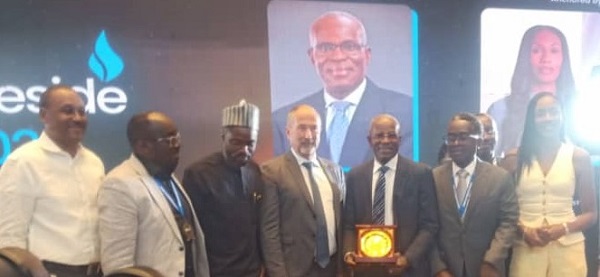With crew change becoming imminent in the Nigerian petroleum industry, it has become urgent for independent players to prepare for greater roles in meeting Africa’s long term energy needs.
And capacity growth strategies for sustainable petroleum industry operations may necessarily entail forging partnerships that focus on goals, integrating upstream and downstream operations, developing human capital and evolving creative funding strategies.
One of Nigeria’s most accomplished petroleum geologists, Dr Layi Fatona, who gave the advice, stated that building operating resilience has become urgent in the face of uncertainties around the presence of international oil companies in Africa.
Dr Fatona who initiated integrated oil and gas exploration, development, production and processing operations in the country sits on the board of Aradel Holdings Plc, ND Western Limited and Renaissance Africa Energy Company Limited amongst other companies.
He remains a dominant force in the nation’s Independent Petroleum Producers Group (IPPG) as one of the most decorated and accomplished industry professionals, investors and operators.
Dr Fatona was the distinguished guest on the Oida Fireside Chat, the industry experience sharing platform sponsored by Oida Energy Group which comprises sister Xenergi Limited and Empower FZE.
Whereas Oida Energy remains Africa’s pioneer well intervention and brown asset development company, its sister Xenergi Limited leads in natural gas processing. The Enpower FZE provides infrastructure enhanced hubs; excelling in manufacturing and cross border trade facilitation through the development and operations of free trade zones and eco-industrial parks.
The Oida Fireside Chat is hosted by award winning broadcaster, Ms Adefemi Akinsanya.
In front of a large industry audience at the latest Oida Fireside Chat were eminent professional leaders including the outgoing Chairman of Board of Trustees of the Society of Petroleum Engineers (SPE) in Nigeria, Engr Emeka Ene; Africa Regional Director of SPE, Dr Riverson Oppong; and the President of SPE International, Olivier Houzé.
In fielding questions from the show anchor, Dr Fatona pointed at the long term relevance of petroleum in fueling Africa’s development and the unfolding short term nature of foreign investments. He told the audience that the resilience of the companies he supported derived from the realization that only Nigerians can build the country.
He made it clear that international oil companies popularly called IOCs come for profit and divest their commercial interests when profit dwindles.
In sharing his experience in the industry for the past 50 years, Dr Fatona emphasized the power of collaboration and partnership as veritable facility for overcoming the challenges of talent and funding.
He said collaborations that focus on goals and ignore differences made it possible for indigenous companies to forge consortiums that pooled the right set of capacities that enabled Renaissance Africa Energy Company Limited to acquire the assets of Shell Petroleum Development Company (SPDC) Nigeria Limited.
Dr Fatona noted that it would have been painful if the opportunity to acquire SPDC was lost to a foreign company. He pointed out that no one indigenous independent could have acquired SPDC at the time.
The challenge to retain SPDC’s assets for Nigerian entities, according to him, compelled over 120 local interests into several failed partnership attempts.
He confessed that the Renaissance Africa consortium was made possible by the compelling goal to acquire SPDC. He added that existing partnership in the ND Western Limited recommended itself for the Renaissance consortium.
On pioneering integrated onsite operations at the Ogbele marginal field, Dr Fatona revealed that the model was a business strategy to escape gas flare penalty and arrest production losses to thieving vandals.
The Ogbele field integrated operations, he noted, have become a model for resilience.
He described human capital development as the biggest single challenge to Nigerian independent companies, explaining that the petroleum industry does not recruit from the streets.
In asserting that HCD should be the strongest platform for petroleum industry development, Dr Fatona pointed at the urgent need to meet the country’s growing appetite for energy consumption.
On funding, he advised players to explore unconventional funding methods.
In dispelling fears of credit drought associated with climate activism, Dr Fatona said players still have opportunity to access various local funding options. He revealed that NDPR mopped cash from the streets for its early investments.
He also dismissed fears related to energy transition, saying that energy availability and penetration are still very low in the country. He made it clear that Nigerians deserve affordable energy, saying that climate concerns only require players to operate responsibly.
Energy access must be prioritized over climate sentiments, Dr Fatona noted, arguing that fossil fuels remain unoptimized and would remain in demand for long term.
He emphasized that fossil fuels are not short term in Nigeria and Africa. He also acknowledged that new energy sources are being developed around Africa.
The future of fossil fuel is still long, Dr Fatona stressed. He encouraged players in the country to evolve strategies that enhance their capacity for sustainable industry operations.


Comment here